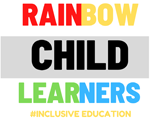
My name is Confidence Erondu I am a mathematician who is currently pursuing a career as a psychologist. I’ll share with you my observations and advice for parents and caregivers based on my experience working with children with special needs. Let’s look at the benefits and drawbacks of technology for children’s development.
Depending on how it is used and in what context, technology can have both positive and negative impact on the development of children. Consider these potential effects: Every parent is aware of the beauty of distraction and how it can assist in distracting a toddler who is having a tantrum. With phones generally inside arm’s compass, technology is dependably a relevant interruption. While handling over the phone may calm a raged preschooler, we caution parents about the potential harm that mobile devices can cause to children’s ability to learn how to self-soothe and maintain control in times of distress. When confronted with issues at school, family arguments, or other stressful situations, children can use technology as a coping mechanism and diversion from those situations.
On the other hand, neglecting social interactions can result from excessive technology use. After all, practice is necessary for social skills development. Children may not be able to navigate these social skills in order to navigate their interpersonal relationships due to the distracting nature of many screen-based technologies. As a result, in the long run, they may have less ability to solve problems with their peers and develop weaker social skills.
Alternately, technology can be utilized as a means of coping and as a distraction from problematic issues. When confronted with issues such as not fitting in at school or having an argument with their parents at home, among other things, children may seek distractions at their fingertips.
Set Limits
Technology shouldn’t be a problem if used in moderation. The numbers, on the other hand, suggest that the majority of people haven’t found a balance and use technology much more than the suggested limit. Keep in mind that technology can have an impact even when used by parents and other caregivers. Children learn by observing and imitating, and this is especially true when it comes to using technology. In our busy lives, excessive screen time seeps away intentional time spent together, which is essential for their development.
Make sure to check in, communicate, and establish healthy digital boundaries for your child as they get older and become more exposed to technology. This will ensure that the time they spend playing, interacting with their friends, and exploring their interests is not replaced by screens. Empathy, problem-solving abilities, curiosity, intelligence, and listening all benefit greatly from these interpersonal interactions.
Children should not be exposed to technology before the age of two, and they should only be exposed to entertainment media for one to two hours per day. To push ahead in a solid heading, we really want to set a model and seek after an equilibrium for our youngsters, profit by the advantages of innovation, and ease the adverse consequences that lie readily available. Overall, if used wisely and in moderation, technology can be a powerful tool for child development.
Parents and caregivers, on the other hand, must be aware of the potential negative effects and take steps to reduce them.
On our platform, you can connect with professionals, and we can help your child with their learning and development needs.
